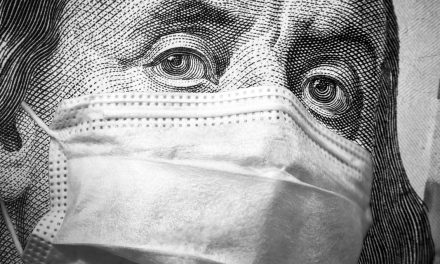America has a chance to eek its way out of this pandemic. However, several factors must coalesce before this happens; roughly 85% of Americans must be vaccinated to reach herd immunity; social distancing, masking, hand hygiene, and good old-fashioned common sense must remain constant among the unvaccinated; and a lion’s share of those reticent to receive the vaccine must be persuaded that getting vaccinated is a personal choice to protect family members, friends, and the community.
Deaths from the coronavirus will soon hit the 600,000 mark in the U.S. That’s 600,000 precious lives gone. This level of loss is almost too difficult to comprehend. Yet, the number of people still unwillingly to embrace the promise of the vaccines, the truth about this pandemic, and its inherent power to dismantle families, and defer hope falls silent on parts of the American demographic.
The Rural Landscape
According to the Kaiser Family Foundation (KFF) Vaccine Monitor, an interview of 1001 rural adults across the country revealed some uncompromising attitudes about the vaccine. Although three in 10 say they will get vaccinated as soon as possible (16%), almost as many are waiting to see how it works in other people (15%). Three in 10 say they will “definitely not” get the vaccine or will do so only if required. Those who report they are “definitely not” getting the vaccine generally skew Republican or Republican-leaning Independents (73%), White Evangelicals (41%), essential workers in fields other than health care (29%), and young adults aged 18-49 (28%).
The study also suggests that many U.S. rural adults have more nonchalant attitudes about COVID-19 compared with their urban and suburban neighbors. According to KFF, rural adults are less likely to view the pandemic as a serious threat to the country or to their families.
Specifically, more than four in 10 (44%) rural adults say the media has “generally exaggerated” the pandemic’s severity, compared with urban (27%), and suburban residents (33%). Additionally, 40% of rural adults are less likely to say they worry about themselves or their family getting sick from the coronavirus, compared with urban (54%) and suburban residents (49%). When it comes to masking, 74% of rural adults report wearing a face mask to protect themselves and others compared with urban (90%) and suburban residents (87%). Consequently, the nearly half of rural adults who only wear a mask “some of the time” say they will definitely not get vaccinated.
When KFF asked this same group to cite, in their own words, why they won’t get vaccinated, some of the responses included:
- “Pretty good immune system don’t want to mess with it.” (55-year-old man)
- “I don’t just want to get it, don’t see the point in getting it. Lot of negative reaction I rather not.” (37-year-old-woman)
- “Because who knows of the effects or what the vaccine truly is.” (41-year-old woman)
- “It’s not a vaccine, it is just a flu shot that has not been tested. It only makes the COVID flu, if you get it, easier for your body to resolve. A vaccine means you will not ever contract the virus you are vaccinated against.” (77-year-old man)
Just the facts
Today, there are two vaccines, Pfizer-BioNTech and Moderna, that have no known lasting side effects, and one, Johnson and Johnson, that reported blood clots in 15 women out of 8 million vaccinated individuals. After a short pause, it has been cleared by the Centers for Disease Control and Prevention (CDC) and the Federal Drug Administration (FDA) to resume use.
“We now have three COVID-19 vaccines, and all three are safe and effective,” said Sandra Fryhofer, MD, an Atlanta general internist who serves as the American Medical Association’s (AMA) liaison to the CDC Advisory Committee on Immunization Practices (ACIP) and COVID-19 Vaccine Work Group.
“ACIP has expressed no preference for any of these three authorized vaccines,” she said. “The companies really have done a good job in trying to mirror their study to represent the real world. Everything just happened a lot quicker than what we’re used to, which is good. Now the next thing we’ve got to do is our job and take advantage of this gift that’s been given to us.”
As the number of single-dose and fully vaccinated people increases daily, the pace of newly vaccinated adults is slowing. Knowing the facts about the available vaccines is the first step in making an informed decision about whether to get vaccinated against COVID-19.
“Pretty good immune system don’t want to mess with it”
Individuals who boast of impeccable immune systems may be kidding themselves. One analogy explained it like this: soldiers go through basic training because without this training, the powerful weapons they harness may prove as deadly to their comrades as to their enemies.
An untrained immune system is no different. It must be trained to attack the virus and [not] the body and organs that reside with it. In other words, the immune cells must be educated to recognize the enemy (the coronavirus) and not attack itself.
If you have an untrained immune system and a “brand-new virus and the virus is winning, the immune system may go into an ‘all hands on deck’ response,” said Dr. Nina Luning Prak, co-author of a January study on COVID and the immune system. As a result, some COVID-19 survivors have experienced autoimmune conditions that cause paralysis, blood clots that lead to strokes, type 1 diabetes, as well as long-haul syndrome that can last months or even years after the virus has cleared.
“Don’t trust it… It was too rushed.”
The vaccines are designed to train immune cells to attack the virus and mitigate death and serious illness. Pfizer and Moderna vaccines use something called messenger RNA (mRNA), a technology that has been decades in the making. mRNA may be new to the public, but it has been a fixture in the scientific community for about 20 years.
mRNA has become a valuable tool in virology and epidemiology because vaccines using mRNA technology can be developed in a laboratory using materials that are readily available and easily accessible. What this boils down to, according to the CDC, is the ability to create a standardized process for developing and scaling these vaccines to get shots in arms quicker. It does not mean that risks were taken when developing this vaccine, or steps were missed. mRNA vaccine technology is safe and effective and has been studied prior to COVID-19 for things like flu, Zika, rabies, among other things. Additionally, future mRNA vaccine technology may allow for one vaccine to provide protection for multiple diseases. This will decrease the number of shots needed for protection against common vaccine-preventable diseases.
This is how COVID-19 mRNA works: Individuals receive the vaccine in the upper arm muscle. Once injected, instructions, or mRNA, reach the immune cells. The immune cells make a special protein. After the protein is made, the cell breaks down mRNA’s instructions and eliminates it.
The cell then displays the protein on its surface. The immune system recognizes that the protein does not belong there and begins its immune response by making antibodies. This process is similar to what happens when a person is naturally infected with COVID-19. The difference is the immune cell has undergone combat training to recognize the enemy, as opposed to going into overdrive and attacking itself.
Because of this, the body has learned how to protect against future infection. The benefit of mRNA vaccines is those who have been vaccinated benefit from this protection without having to risk the sometimes fatal consequences of contracting COVID-19 or suffering from long-term effects of the disease.
It’s important to note mRNA vaccines like Pfizer and Moderna do not use the live virus that causes COVID-19. Additionally, mRNA does not hijack or alter one’s DNA. As a matter of fact, mRNA never enters the nucleus of the cell, where the DNA is housed. The immune cell breaks down and discards the mRNA soon after the instructions it delivers are used.
“I told you it wasn’t safe. Look what happened with J&J.”
After a temporary pause, CDC and FDA recommend use of Johnson & Johnson’s Janssen COVID-19 vaccine resume in the United States. A review of all available data shows that the Janssen COVID-19 vaccine’s known and potential benefits outweigh its known and potential risks.
However, women under 50 years old should be aware of the rare risk of blood clots with low platelets, called thrombosis with thrombocytopenia syndrome (TTS). On April 13, 2021, use of the Janssen vaccine was paused out of an abundance of caution to review a small number of U.S. reports of this complication.
Unlike Pfizer and Moderna, Johnson and Johnson does not use mRNA vaccine technology. Instead, the scientists who developed this vaccine added a gene to an adenovirus (a common virus that causes colds or flu-like symptoms) for the coronavirus’s signature spike protein. The adenovirus was modified so it can enter cells but not replicate or cause illness.
Once the vaccine enters the body, the adenovirus delivers the instructions that teach cells to make spike proteins – these proteins cause the immune system to react by creating antibodies to attack the spike protein. The benefit is if the vaccinated individual is later exposed to COVID-19, the immune system is trained and ready to fight the coronavirus.
The medical community still recommends the use of the one-dose Johnson and Johnson vaccine and points to the CDC’s and FDA’s willingness to pause the drug as a positive to ensure safety and efficacy.
“I respect the fact that it is up to each person to decide if they want to take the COVID-19 vaccine,” said Toniann Richard, CEO of the Health Care Collaborative of Rural Missouri, which owns and operates six federally qualified health centers. “I was born and raised in a rural town in Kansas. I understand and respect the attitudes about this pandemic, the vaccines, and one’s belief that whether to get vaccinated is a personal choice. However, as an advocate for rural health care, and a huge champion of our rural communities, I also believe in the safety of these vaccines. We gain nothing financially by the number of people we vaccinate at our clinics. However, there is a resounding sense of loss for every person we lose to this pandemic. Please call your local clinic for an appointment to be vaccinated.”
For more information, visit GetVaccineAnswers.org.








